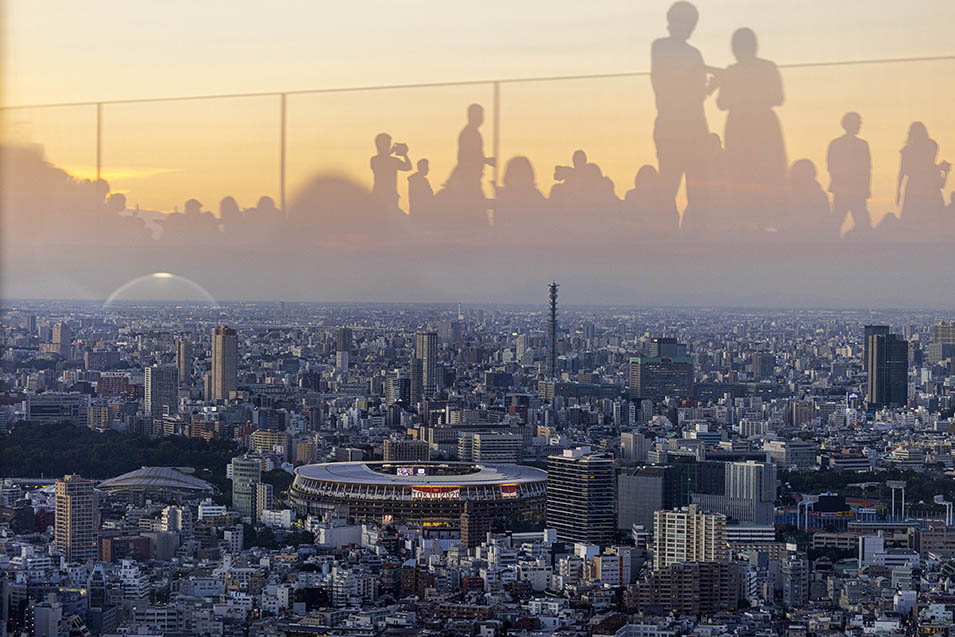
New York Times Reporting by Motoko Rich
The opening ceremony is Friday and the first competitions are Wednesday. But organizers of the Tokyo Olympics, delayed one year by the pandemic, are struggling to manage public anxiety about the Games after a cluster of coronavirus cases that threaten to overshadow the festivities.
As about 20,000 athletes, coaches, referees and other officials have poured into Japan in recent days, more than two dozen of them have tested positive for the virus, including three cases within the Olympic Village. An additional 33 staff members or contractors who are Japanese residents working on the Games have tested positive.
The U.S. Olympic and Paralympic Committee confirmed Monday that an alternate on the women’s gymnastics team had tested positive for the coronavirus while in training in Chiba prefecture outside Tokyo.
Despite being vaccinated, Kara Eaker, 18, of Grain Valley, Missouri, tested positive early Monday and began a 10- to 14-day quarantine, her coach, Al Fong, said in a text message later that day from Tokyo. He added that she “feels fine.”
Fong also said Leanne Wong, another alternate and Eaker’s teammate at his GAGE Center gym in Blue Springs, Missouri, is also under quarantine, expected to last until about July 31, because she is considered a close contact.
Wong, who is 17 and from Overland Park, Kansas, said at the Olympic trials earlier this month that she had not been vaccinated.
The U.S. women’s basketball team also suffered a blow with the news that Katie Lou Samuelson, a member of the 3x3 Olympics team, would miss the Games after a positive test result. Samuelson was fully vaccinated and took every precaution, she said.
“Competing in the Olympics has been a dream of mine since I was little girl, and I hope someday soon, I can come back to realize that dream,” Samuelson, 24, wrote in an Instagram post.
The U.S. men’s national basketball team traveled to Tokyo on Monday without guard Zach LaVine, who entered coronavirus health and safety protocols. In a statement, Team USA said it was hopeful that LaVine could rejoin the team later this week. The team reshuffled its roster last week after losing guard Bradley Beal to health and safety protocols and forward Kevin Love withdrew from participation.
Olympics organizers have said their measures — including repeated testing, social distancing and restrictions on movement — would limit, but not eliminate, coronavirus cases. The Games, originally scheduled for 2020, were postponed a year in the hopes the pandemic would have eased by then and they would herald a triumphant return to normal.
Instead, they have become a reminder of the staying power of the virus and have fed a debate over whether Japan and the International Olympic Committee have their priorities straight.
Such is the unease that Toyota, one of the prime corporate sponsors of the Games, announced Monday it would not run any Olympic-themed television advertisements during them.
“There are many issues with these Games that are proving difficult to be understood,” Jun Nagata, the company’s chief communications officer, told reporters, according to The Associated Press.
The three people who tested positive inside the Olympic Village were from the South African soccer team, including two athletes and one official. They were isolated in a separate building while an additional 21 people in close contact with them are quarantining in their rooms.
Masa Takaya, a spokesperson for the Tokyo organizing committee, said athletes who were in close contact with those who tested positive would be allowed to train if they otherwise follow the isolation restrictions. Athletes are tested daily and if they test negative within six hours of a competition, they will be allowed to play.
Another six athletes and two Olympics staff members from Britain were also isolating after they had been informed that they had sat near a person on their flight to Tokyo who had tested positive for the coronavirus at the airport.
The Associated Press reported that Ondřej Perušič’, a beach volleyball player competing for the Czech Republic, had also tested positive in the Olympic Village.
At a news conference over the weekend, Christophe Dubi, the IOC’s sports director, said “there is no such thing as zero risk,” adding that through testing and rigorous contact tracing and quick isolation, the Olympic Village would be “a COVID-safe environment but not COVID free.”
The Japanese public remains anxious about the staging of the Olympics amid a slow rollout of vaccines and a recent rise in coronavirus cases in the capital. Daily case counts have exceeded 1,000 for several days for the first time since mid-May. Tokyo is under a state of emergency. A poll by Kyodo News, a wire service, released over the weekend showed 87% of those surveyed said they were worried about hosting the Olympics during the pandemic.
This article originally appeared in The New York Times.
c.2021 The New York Times Company



